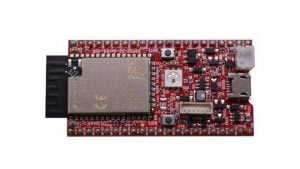Olimex Launches First Open ESP32-S2 Board with Full USB OTG
The new design offers lithium-polymer battery charging, full USB host and device operation, and direct programming over USB.

A year ago, Olimex presented ESP32-S2-DevKit-LiPo and ESP32-S2-WROVER-Devkit-LiPo boards upgraded for battery-fueled applications with just 30uA deep sleep power utilization.
ESP32-S2 processor accompanies a USB OTG interface, however at that point, Espressif Systems ESF-IDF SDK didn't uphold programming by means of the underlying USB interface, so Olimex added CH340T USB to chronic converter for programming.
Fortunately, the SDK would now be able to help USB programming without an outer chip, so the organization planned new forms of the sheets without a USB to sequential chip with in particular ESP32-S2-DevKit-LiPo-USB and ESP32-S2-WROVER-Devkit-LiPo-USB boards.
The specifications are essentially equivalent to the previous boards aside from the removal of the USB to sequential chip, support for the USB OTG, and even lower power utilization.
Features:
- Wireless Module:
- ESP32-S2-DevKit-LiPo – ESP32-S2-WROOM with Espressif ESP32-S2 single-center 32-cycle LX7 chip up to 240 MHz with 128 KB ROM, 320 KB SRAM, 16 KB SRAM in RTC, 4MB SPI streak
- ESP32-S2-WROVER-Devkit-LiPo – ESP32-S2-WROVER – same as above in addition to 2MB PSRAM
- Remote availability – 2.4 GHz 802.11 b/g/n WiFI 4 up to 150 Mbps
- Development – 2x 20-pin I/O headers with SPI, I2S, UART, I2C, contact sensors, PWM, etc… (pin-to-pin compatible with ESP32-S2-SAOLA-1)
- USB – Micro OTG USB port
- Misc – RGB LED, Reset button, client button, 6-pin header for programming
- Power Supply:
- 5V through miniature USB port or I/O pins
- 2-pin header for LiPo battery in addition to battery charging and monitoring circuit, external power supply sense
- Power consumption as low as 20 uA in deep sleep mode, 65 uA for ESP32-S2-WROVER
One may think eliminating a chip and connecting the USB interface to the miniature USB port directly might be a minor undertaking, yet Olimex clarifies it was very confounded as they needed to keep the LiPo charger and battery circuit, and prominently have the option to charge the battery in USB OTG mode, providing 5V while in host mode.
Since the boards are open-source, the schematics for the same are present on Github, where you'll additionally find an Arduino sketch controlling the RGB LED. It ought to be noticed that while the USB device and host modes are hardware supported , however the USB usability for ESP-IDF SDK is still missing.
The boards are now available for sale on the Olimex website.







